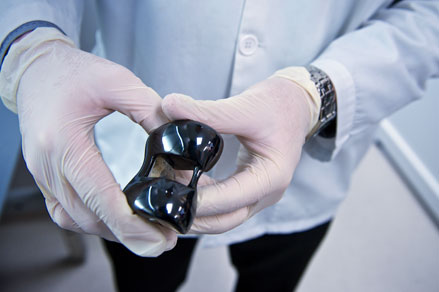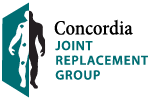Patients, surgeons and family doctors are partners in the health care team. There are several other members who play equally important roles. Some of the other members of the team who will assist you are:
Registered Nurse (RN)
Nurses are at the front lines of care. They are responsible for all aspects of the patients’ wellbeing while in hospital. This means caring for the whole person –the physical, intellectual and social needs.
For more information visit the Canadian Nurses Association.
Orthopaedic Nurse
The Orthopaedic Nurse is a registered nurse who, in addition to his/her general nursing knowledge, brings to his/her practice specialized knowledge about care of clients with challenges from conditions affecting the bones and joints.
For more information visit the Canadian Orthopaedic Nurses Association.
Physical Therapists
Your family doctor may refer you, or you may refer yourself to a physiotherapist (physical) for non-surgical management of your orthopedic problem. Physiotherapists are health care professionals trained to assess, diagnose, treat and prevent orthopedic diseases or conditions. They use their expert knowledge of anatomy and human movement to treat conditions using exercise, education, manual therapy and other physical techniques.
In addition, if you do require surgery, the physiotherapist will help you return to full physical function following your procedure. Discuss your goals and expectations with your physiotherapist who will help you understand your condition, your options and what you will need to do to achieve your goals for recovery. Your physiotherapist works closely with your surgeon and your family doctor in every aspect of your care.
For more information visit the Canadian Physiotherapy Association and Manitoba Physiotherapy Association.
Occupational Therapists
Occupational therapists assist in identifying and resolving challenges that prevent or limit you from participating in your daily activities of living. Treatment includes education, suggesting assistive devices or alternative approaches for self-care, homemaking, work tasks and leisure activities, making splints and orthotic devices to aid in the restoration of function.
For more information visit the Canadian Association of Occupational Therapists.
Physician Assistants/Clinical Assistants
Physician Assistants (PAs) and Clinical Assistants (CAs)are highly skilled health professionals who practice alongside and under the supervision of a physician. They perform tasks similar to those of their supervisors, including examination, diagnosis, testing, referrals and treatment including prescribing of medications.
In Canada, the PA role was developed within the Canadian Forces Health Services to provide a full spectrum of medical care to its members. In 2003, the Canadian Forces PA program was accredited by the Canadian Medical Association. In Manitoba, there are training programs outside of the Canadian Forces for PAs and several are employed in the Winnipeg Regional Health Authority including working with the arthroplasty surgeons. In addition to the PA program, the arthoplasty program has several CAs which function in the same role as PAs, but are foreign trained physicians that are ineligible for licensure in Manitoba based on the location of their training. By acting as extension of the supervising surgeon, they are able to bring their vital skills to the people of Manitoba.
For more information visit the Canadian Association of Physician Assistants.
Pharmacists
Pharmacists are professionals responsible for the optimal use of drugs. A pharmacist works with the health care team and their patients to determine if any drug-related needs exist which are preventing the patient from attaining their desired quality of life.
For more information visit the Canadian Pharmacists Association.
Anesthesiologists
Before your operation you will meet the anesthesiologist. This doctor has the responsibility for your medical welfare when you undergo surgery and is a vital member of the surgical team. Anesthesiologists are physicians who have completed medical school and then five or more years of specialized (residency) training in anesthesiology.
Anesthesiologists train extensively in human physiology (how the body works), particularly the brain, heart, lungs, kidneys and liver and are experts on the drugs that are used in anesthesia and intensive care medicine.
For more information visit the Canadian Anesthesiologists’ Society.
Rheumatologist
A rheumatologist is a specialist in the medical (non-surgical) treatment of arthritis and rheumatic diseases. A rheumatologist’s training includes four years of medical school, three or four years of internal medical training and at least two years of sub-specialty training in rheumatology. Not everyone sees a rheumatologist, but you may depending on your condition.
For more information visit the Canadian Rheumatology Association.
Orthopaedic Residents/Fellows
Residents are doctors who are in the midst of their orthopedic training. They are undertaking many hours of practical training to become a specialist. Fellows are fully trained orthopedic surgeons who are doing further training so that they can focus in a specific area, such joint replacement. You may have residents and/or fellows involved in your care as Concordia Hospital is a teaching facility for orthopaedics and all of the surgeons of the Concordia Joint Replacement Group are academic surgeons dedicated to training the joint replacement surgeons of tomorrow.
For more information visit the Canadian Orthopaedic Residents Association.
Surgical Office Assistant
The Surgical Office Assistant (SOA) is the person who supports the surgeon in clinical matters. The SOA books clinic appointments, and looks after the surgeons clinical office schedule. This is the person having the most contact with patients before and after their hospital stay.
Research Staff
The Concordia Joint Replacement Group is extensively involved in advancing the practice of orthopaedics through research. To this end, they employ a large research staff. You may be contacted by research staff regarding participation in research studies.


